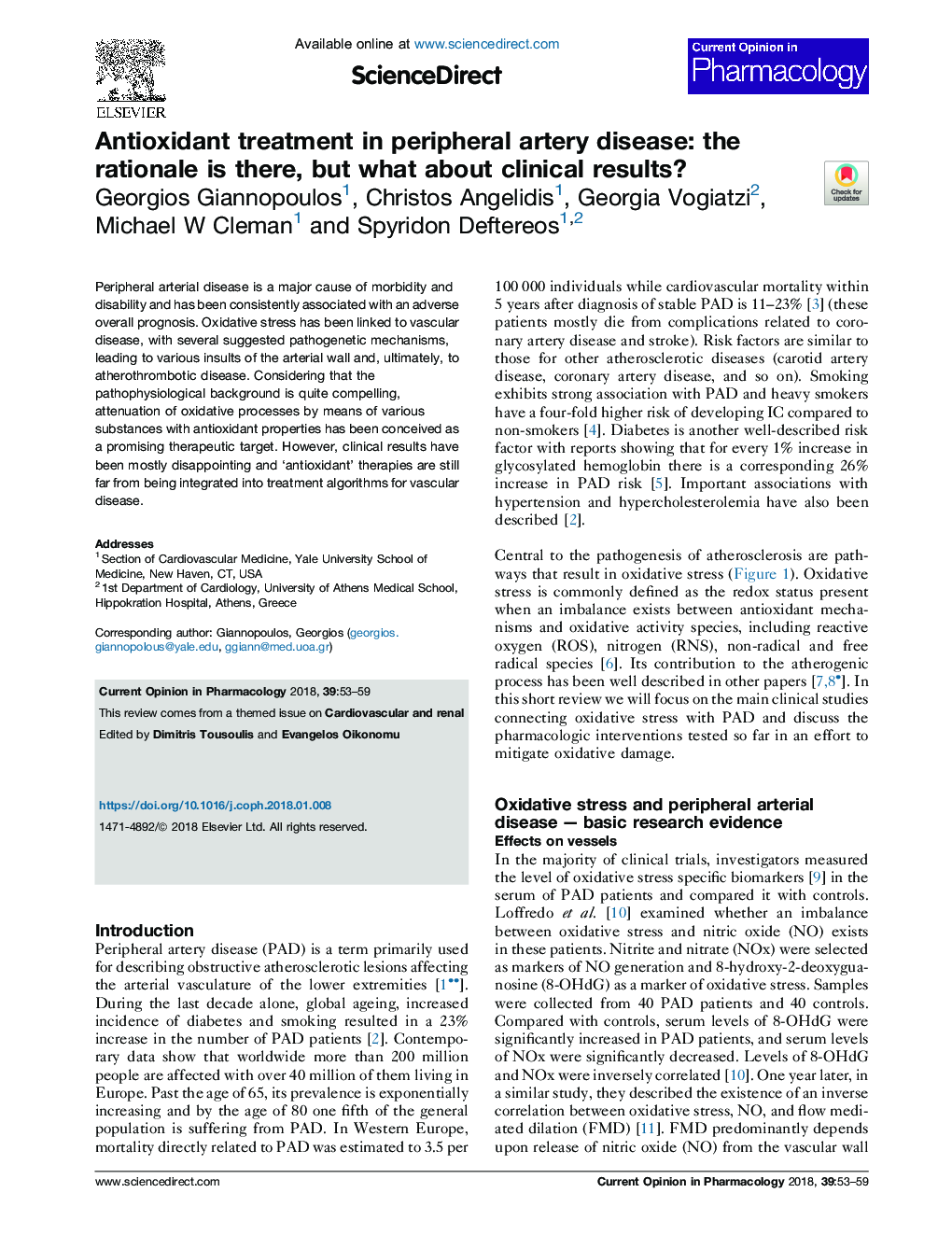| Article ID | Journal | Published Year | Pages | File Type |
|---|---|---|---|---|
| 8528671 | Current Opinion in Pharmacology | 2018 | 7 Pages |
Abstract
Peripheral arterial disease is a major cause of morbidity and disability and has been consistently associated with an adverse overall prognosis. Oxidative stress has been linked to vascular disease, with several suggested pathogenetic mechanisms, leading to various insults of the arterial wall and, ultimately, to atherothrombotic disease. Considering that the pathophysiological background is quite compelling, attenuation of oxidative processes by means of various substances with antioxidant properties has been conceived as a promising therapeutic target. However, clinical results have been mostly disappointing and 'antioxidant' therapies are still far from being integrated into treatment algorithms for vascular disease.
Related Topics
Life Sciences
Neuroscience
Cellular and Molecular Neuroscience
Authors
Georgios Giannopoulos, Christos Angelidis, Georgia Vogiatzi, Michael W Cleman, Spyridon Deftereos,
